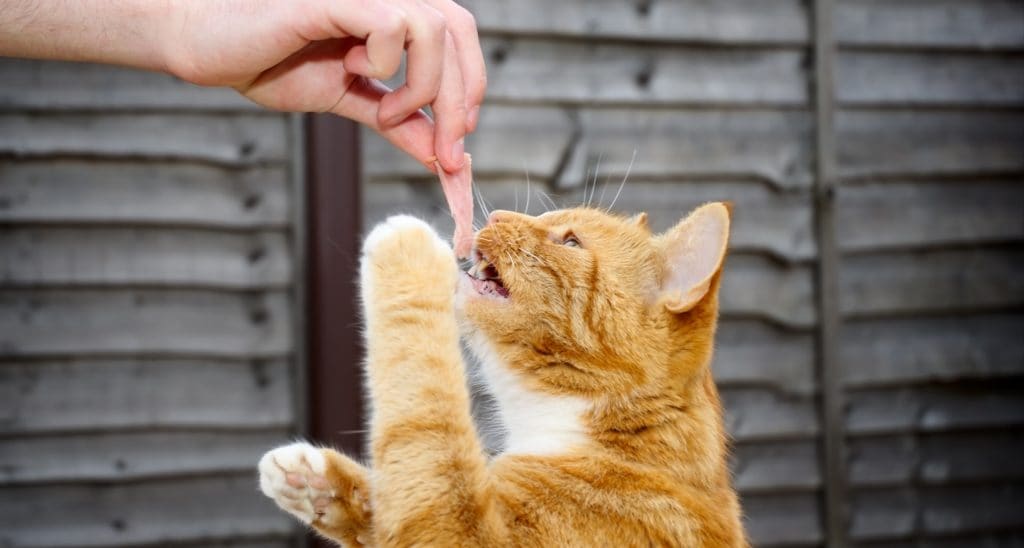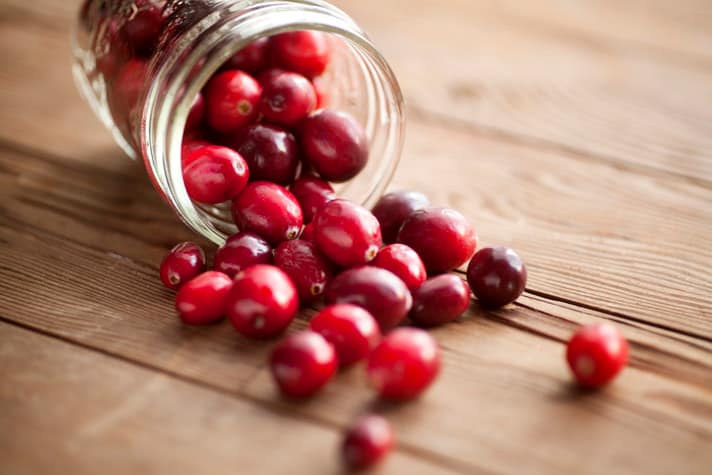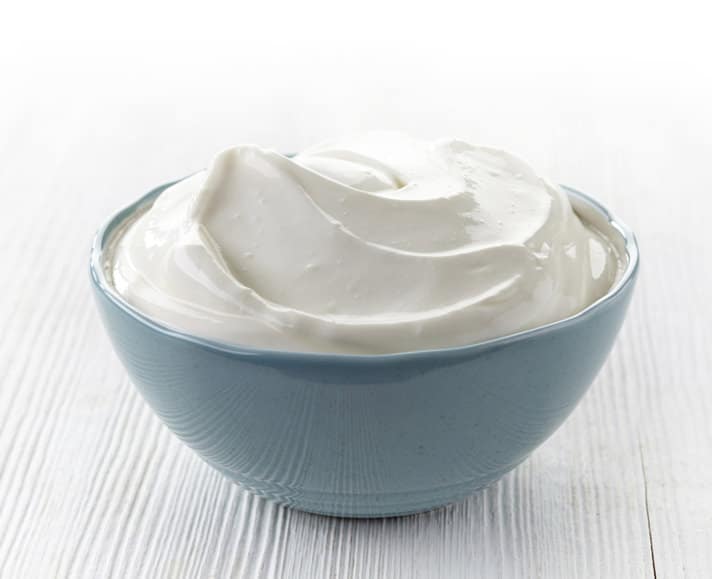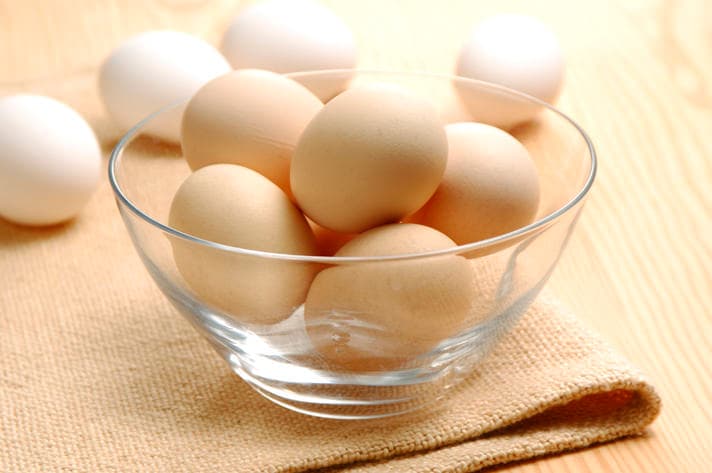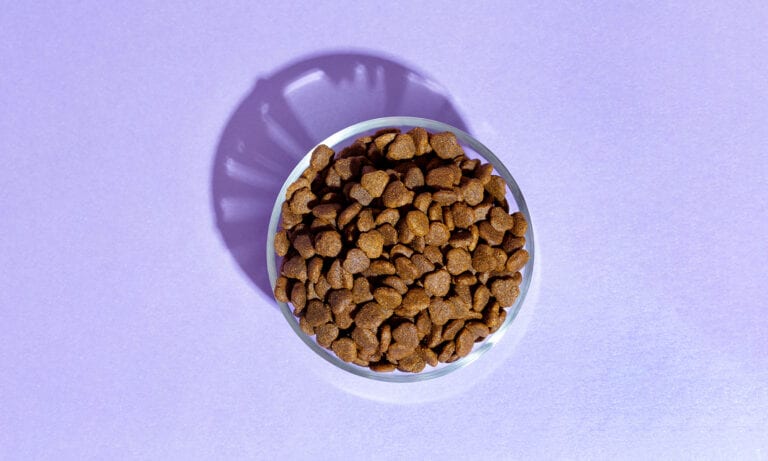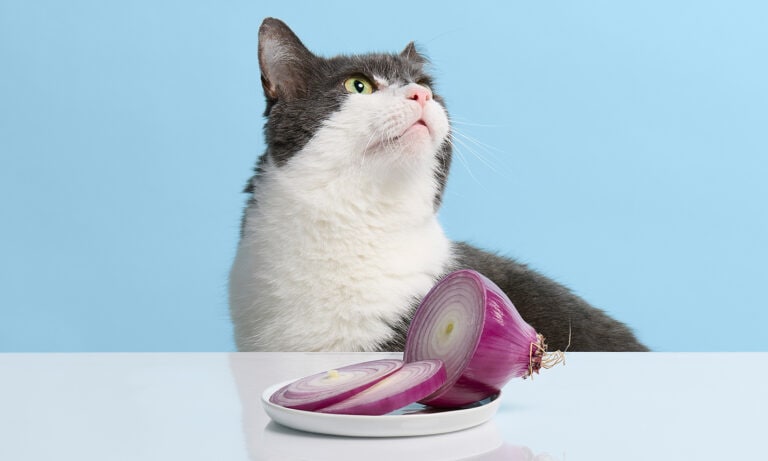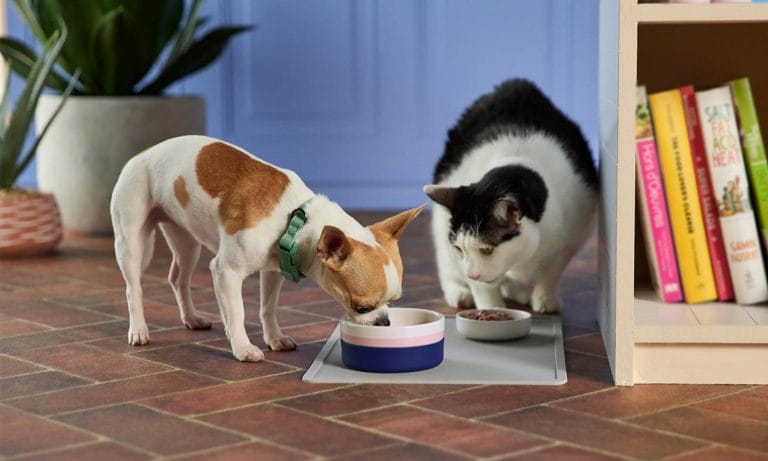It can be hard to resist sharing your dinner plate with your cat when she rubs back and forth against your legs at dinnertime (especially if she tries to steal food from your plate like one in my household), but the veterinarian in me must warn you that human foods can be seriously dangerous for cats. Even some foods your cat loves, such as the iconic saucer of milk, can wreck havoc on their gastrointestinal system — and your rugs.
While the list of human foods safe for cats is much smaller than those for dogs, I’ve got just the cat superfoods to add to your grocery list to help your beloved furball reap nutritional benefits and live a healthier life.
1. Dandelion
I bet you didn’t know that the first superfood for cats was just beyond your back door. It’s believed that dandelion leaves and roots may relieve feline allergies and aid with healthy digestion.
Dig up pesticide-free dandelions — roots and all, as the root is particularly helpful in liver detoxification. Rinse them well, and finely mince them. You can sprinkle a small amount of them on cat food (no more than 1/8 tsp.) or dry them in the oven for a longer shelf life when stored in an airtight container. Many cats enjoy chewing on plants occasionally, and this is great way to get a little roughage in their diet.
2. Cranberries
Though this tart little berry isn’t likely to be your cat’s favorite in its whole food form, cranberry supplements are widely available and only a Google search away. The nutrients in this super berry are known for preventing recurrent urinary tract infections and promoting overall urinary and kidney health. Anything that helps promote urinary health and desirable cat litter box habits goes in my vet-approved column, as litter box problems are the number one reason cat owners surrender their cats to shelters in the United States.
Homemade Treats: Cranberry Cookies
Though science-backed research has yet to determine if this berry provides our cats with measurable benefits, the cranberry is packed with antioxidants and even anti-cancer agents. Check with your veterinarian to ensure your kitty is a good candidate for this super berry.
3. Yogurt
An alternative to that saucer of cow’s milk is plain (not vanilla or sweetened) whole-milk yogurt. Yogurt is rich in protein and calcium, and it’s a great source of probiotics.
Confused as to why yogurt made with cow’s milk is OK for cats, but actual cow’s milk isn’t? It’s simple. Lactose is already broken down with the culturing of the yogurt, and milk proteins are either removed or limited, so it’s easy — and delicious — for cats to digest.
With that said, I still recommend starting with a small amount (less than a spoonful) and waiting a day to make sure Fluffy does well. If your cat still doesn’t seem to tolerate yogurt made from cow’s milk well, unsweetened yogurt made from coconut milk is a great way for your cat to get probiotics and calcium, though it lacks the protein of its cow counterpart.
4. Lean Meats
Cats are carnivores, making this one of my top cat superfoods. Lean meats such as cooked chicken, beef or pork with no visible fat can be a great treat while adding a boost of protein to your cat’s diet. Lean meat is an excellent source of iron and B vitamins, which are involved in your kitty’s energy metabolism.
Homemade Cat Treats: Turkey Triangles
You can prepare lean meats a number of ways, or share them straight from your plate, as long as they haven’t been cooked with heavy sauces and spices. Resist the temptation to share your fat trimmings with your feline; too much fat at one sitting puts your cat at risk for pancreatitis.
5. Fish
Fish is a great source of lean protein and omega-3 fatty acids. Stick with oily fishes, such as salmon, sardines and anchovies, to reap the benefits of omega-3s without doses of mercury.
Because human-sized cans provide large portions, and our pint-sized felines should only have fish as a treat, a trick of mine to avoid losing half the can or pouch to spoiling or drying is to scoop out the remainder of the fish that you don’t offer and form treat-sized pieces with the leftovers. Spread the fish treats out on a pan or plate (you can even mix in some dandelion for an added bonus) and place them in the freezer until frozen. You can then move them to a freezable container and grab an individual treat to thaw and serve at room temperature whenever you please. Why is it necessary to thaw? While Fido would be happy to eat this cold, finicky felines will usually snub their noses at the frozen form of cat treats. (They have trained us well, haven’t they?)
6. Eggs
The incredible edible egg concludes my list of cat superfoods. Eggs are a super source of protein and very easy to digest. They also contain essential amino acids responsible for keeping your kitty lean and muscular.
Make sure to stick with cooked eggs, as there are a couple of problems with giving your cat raw eggs. The first is the possibility of food poisoning associated with humans eating raw eggs. The second problem is a protein in raw egg whites, called avidin, interferes with the absorption of the vitamin B biotin, which your cat needs for healthy skin and shiny coat. I like to offer my cats a bit of scrambled egg once a week. For special days, I like to poach the egg and let them savor the slightly runny yolk. Plus, they have a blast cleaning it all off their whiskers afterward!
Whether you choose raw foods, grain-free cat food or stick with a grocery store tried-and-true standard, I hope you will consider adding some of these whole foods to your cat’s diet. A good rule of thumb is that these superfoods for cats should not make up more than 15 percent of your feline’s diet. All things in moderation — well, except of course kitty snuggles and love.
By: Dr. Laci Schaible
More Cat Foods to Consider
Share:
